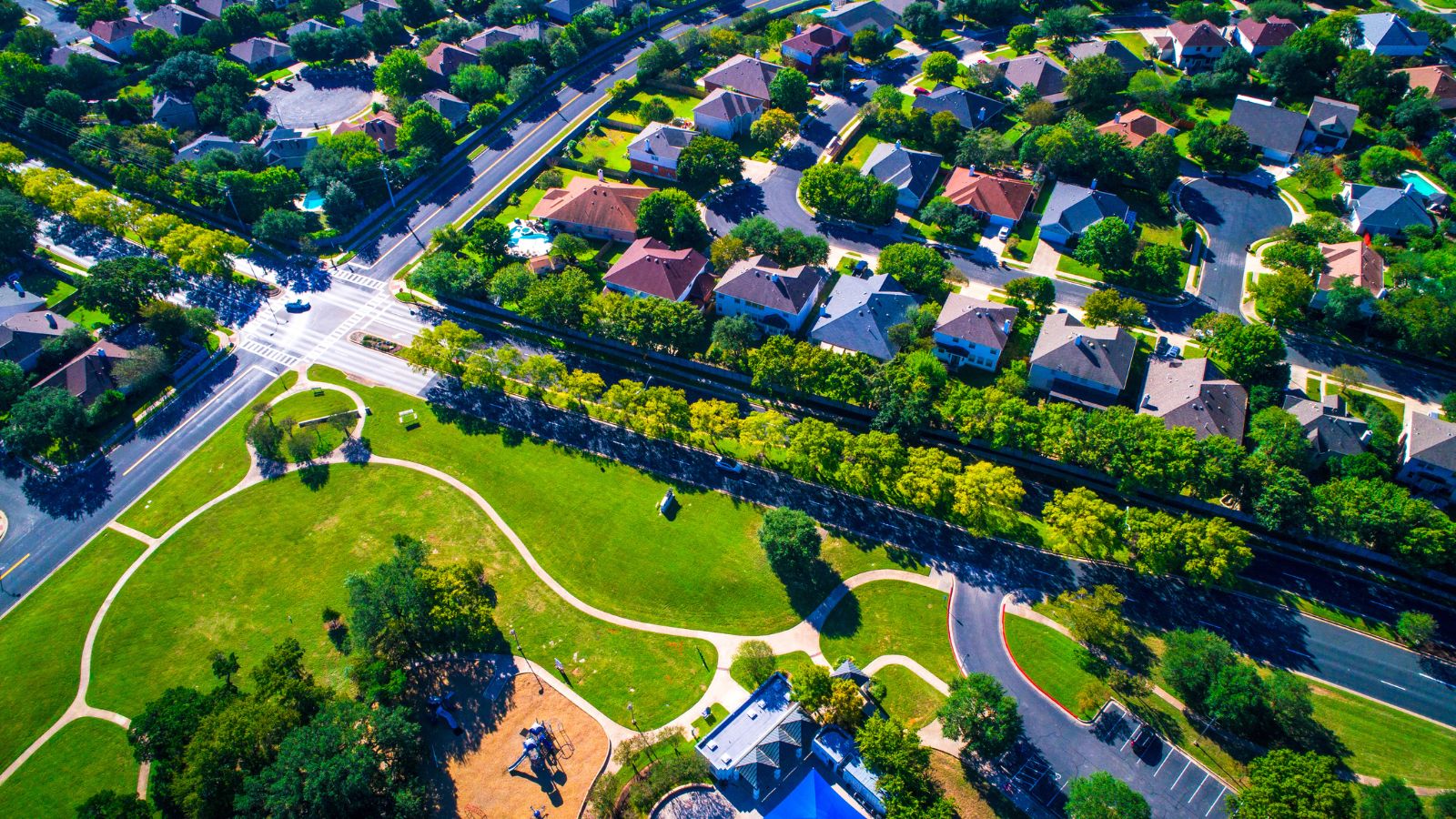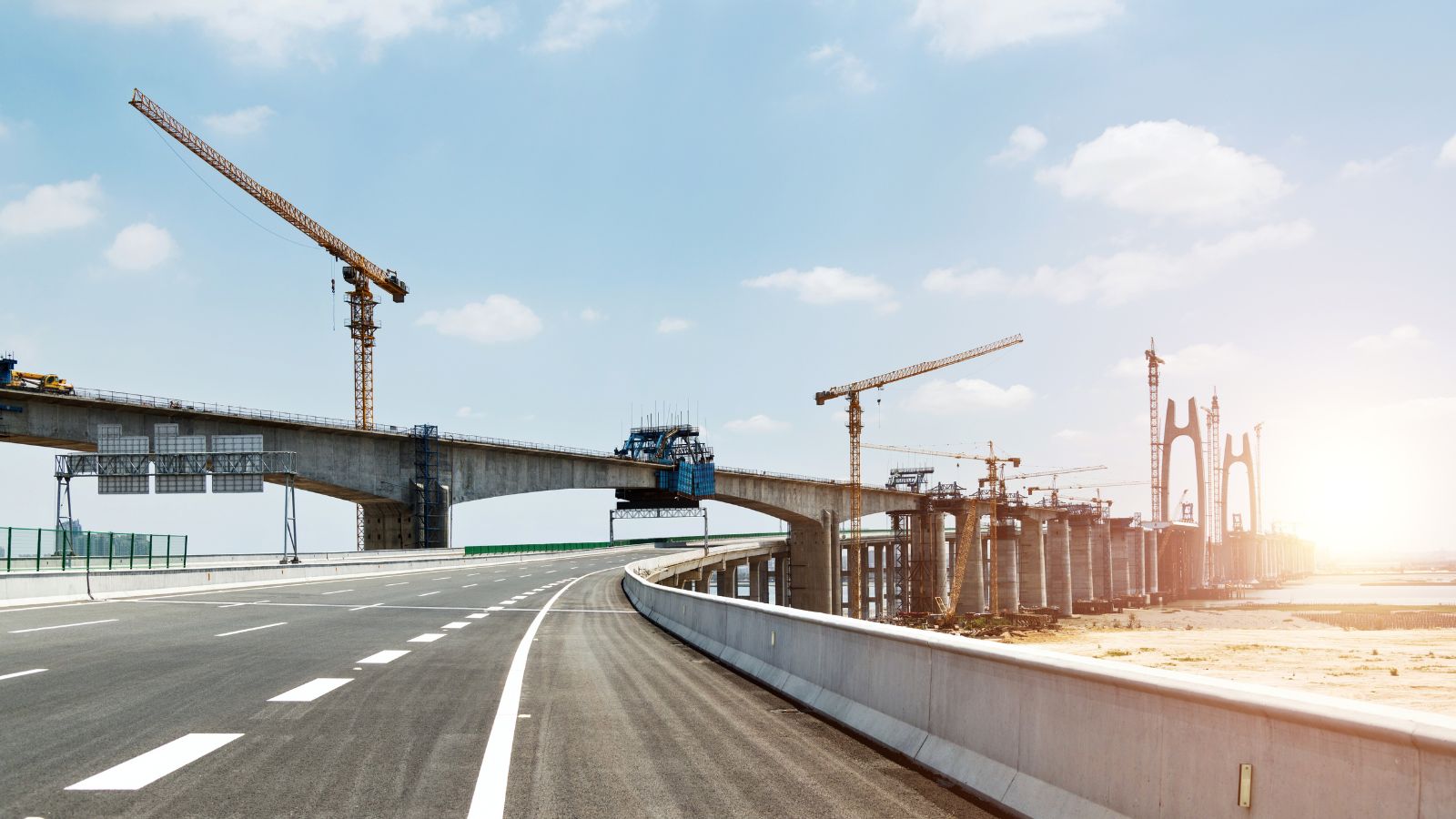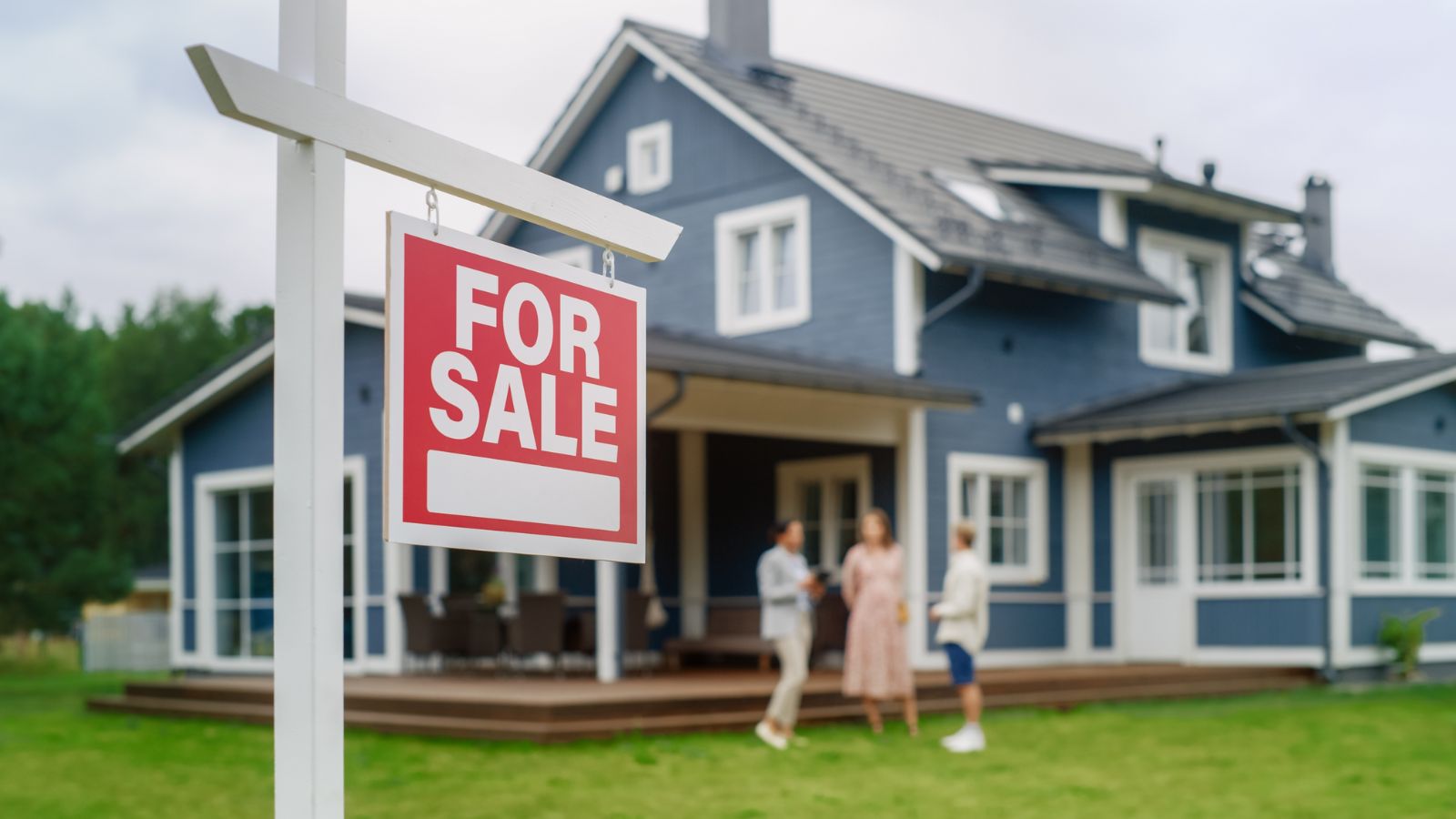In today’s housing market, different trends can affect your property’s value. And to protect or boost their investment, it’s important that, as a homeowner, you know what these factors are. To help you out here, we’re sharing a few key trends that might lower your property value and tips on how to handle them.
Shifting Trends in Homebuyer Preferences

Homebuyers’ preferences often change, impacting property values, so keeping up with popular design trends helps keep your property appealing. Installing modern amenities and having open floor plans will usually boost demand, with The Spruce explaining how an open floor plan can increase value by 7.4%. On the other end of the spectrum, outdated features can turn buyers away and lower home values.
Economic Instability

As you may know, housing markets suffer when the economy struggles, and property values drop. Recessions or high unemployment that occur during economic instability can lower the demand for homes, causing prices to fall. Homeowners should monitor the economy to understand how it might affect their property’s worth.
Environmental Concerns

Rising sea levels and frequent flooding can lower property values and deter potential buyers. Homes located in high-risk areas might become less attractive, so knowing about local environmental risks can help homeowners prepare for possible changes in their property’s worth.
Zoning Changes

Changes in zoning laws can also affect the value of your property. For example, if your area is rezoned for businesses, it might turn off homebuyers. Keeping up with local zoning changes can help homeowners understand how their property value might be impacted.
Infrastructure Developments

It’s no surprise to hear that new infrastructure projects, like highways or factories, can lower nearby property values. These changes might make the area less attractive, often causing more noise and pollution. If you are worried about your property value, then you should keep an eye on any upcoming infrastructure plans in your area.
Interest Rate Fluctuations

Another market trend is that when interest rates increase, buying a home can get more expensive, lowering property values. Higher interest rates often mean fewer buyers, reducing demand and possibly dropping prices. Therefore, homeowners need to be aware of changing interest rates.
Local Crime Rates

No one wants to live in an area with high local crime rates, as this can scare off buyers and hurt property values. If an area seems dangerous, fewer people will want to live there. Regularly checking local crime stats can help homeowners see how their property stands in the market.
Population Shifts

One thing people may forget is that changes in population, like people moving away, can affect home prices. If many people leave an area, house demand drops and prices decrease. Keeping an eye on local population trends can help predict what might happen in the housing market so you can avoid facing any sudden decreases in your property value.
School District Changes

If you have a young family, you’ll want to move to an area with a high-quality school nearby. If a school district improves or its boundaries change, home demand in that area can shift. It’s recommended that homeowners stay updated on local school news to protect their property value.
Overdevelopment

Nobody wants to live somewhere that feels overcrowded. Too many buildings in a neighborhood can flood the market, causing demand to drop and lowering property values. Homeowners should monitor nearby construction projects to see how they might affect their property’s value.
Aging Infrastructure

Outdated infrastructure, such as old roads or public transport systems, can detract from property values. Poor infrastructure may deter buyers, leading to reduced demand. Staying informed about local infrastructure maintenance and improvements can help homeowners assess potential impacts on property value.
Home Maintenance

You’ll most likely be aware that neglecting home maintenance can significantly decrease property value. Issues like a leaky roof or outdated plumbing can reduce your home’s appeal and put off buyers. To avoid this, regular upkeep and addressing repairs promptly can help homeowners maintain their property’s value over time.
Tax Increases

Taxes are the bane of most people’s lives. High taxes may deter potential buyers, decrease demand, and negatively impact property values. Homeowners should stay informed about local tax policies and possible increases to understand their effects on property valuation.
Neighborhood Decline

Buyers want to live in the best area possible, so a decline in neighborhood quality, such as increased vacancies or deteriorating properties, can impact property values. Buyers may be less inclined to invest in declining areas. Monitoring neighborhood conditions can help homeowners anticipate changes in property value and marketability.
Natural Disasters

Areas prone to natural disasters like hurricanes or wildfires are more likely to see fluctuations in property values as the increased risk may deter buyers, affecting demand. Understanding local disaster risks and mitigation measures is essential for homeowners concerned about their property’s long-term value.
Market Saturation

An oversupply of homes in the market can lead to decreased property values, significantly reducing your home’s worth. Increased competition among sellers may drive prices down. Homeowners should monitor housing market trends to understand potential impacts on their property value and selling strategies.
Homeowner Association Regulations

One thing to consider is how strict homeowner association rules can affect property values. Restrictions on home improvements or rentals may put off buyers, impacting demand. Understanding association regulations and potential impacts on property appeal is important for homeowners in these communities.
Aesthetic Changes in the Area

Changes in neighborhood aesthetics, such as poorly maintained public spaces or unsightly developments, can detract from property values. Buyers are often drawn to visually appealing areas, so maintaining neighborhood charm is crucial. Homeowners should engage in community efforts to preserve or enhance local aesthetics.
Technological Advancements

It’s always best to keep your home updated with all the latest trends, as rapid technological changes can affect property values, especially if homes lack modern amenities. Smart home features and energy efficiency are increasingly desirable to buyers. Staying updated on technology trends can help homeowners maintain their property’s appeal in a competitive market.
Up Next: 17 Things Most People Forget After Someone Dies

When a person dies, it’s easy for their partner or family members to overlook things while they process shock and grief. Despite the pain of losing a loved family member, it’s important to remember to organize these 17 things to prevent problems later on.
17 Things Most People Forget After Someone Dies
17 Phrases Confident People Use to Stand Up For Themselves

Confidence is a healthy and attractive trait that helps us stand firm in our values and set healthy boundaries. We can always become more confident, and learning the right ways to stand up for yourself is a great way to start. Here are 17 phrases you can use to do so.
17 Phrases Confident People Use to Stand Up For Themselves
20 Signs Someone Is Only Pretending to Care

Whether it’s to avoid hurting your feelings or if it’s part of a more elaborate plan to deceive you for benefits, people pretend for many reasons. The main theme with them, though, is that their actions never match the sugar-coated words that come out of their mouths. So that you don’t fall for someone like this, we’ve compiled 20 signs for you to look out for.

